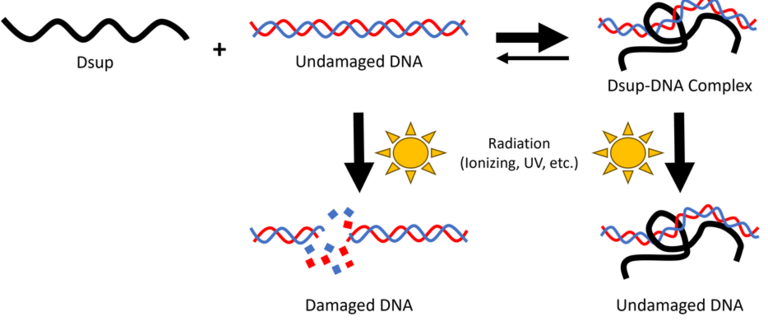Affiliation: Department of Biochemistry and Molecular Biology, University of Iowa
Abstract: DNA damage is a central feature of many genetic disorders, including cancer and cardiovascular disease. Living organisms have evolved a repertoire of molecular strategies to prevent or mitigate such damage. By studying these strategies, we can gain understanding into disease progression and novel therapies. Tardigrades, extremophiles capable of surviving harsh environments, employ unique protective mechanisms. Among them is the Damage Suppressor (Dsup) protein, which is known for its ability to protect DNA from radiation-induced damage. Interestingly, when expressed in human cells, Dsup increases radiotolerance, underscoring its potential pharmaceutical relevance.
Despite this relevance, the biochemical and structural features that underlie Dsup’s protective function remain poorly understood. To address this gap, we investigated its biochemical and structural properties using a variety of approaches, including mass photometry, biolayer interferometry, small-angle X-ray scattering, and microfluidic modulation spectroscopy. Our results show that Dsup is largely intrinsically disordered yet binds DNA promiscuously and with high affinity through a multivalent interface. This interaction induces conformational changes in both Dsup and the DNA itself, suggesting a potential structural mechanism of protection.
We posit that Dsup modifies DNA structure—possibly by inducing partial unwinding—to reduce its vulnerability to radiation-induced damage. Together, these findings provide new insights into one of the key mechanisms that Tardigrades evolved to survive immense radiation. By revealing a potential structural mechanism for Dsup-mediated DNA protection, this work not only advances our understanding of tardigrade biology but also highlights the broader potential of Dsup-inspired strategies to enhance radiotolerance in human health and disease.
Authors: Tyler J. Woodward and M. Todd Washington.
